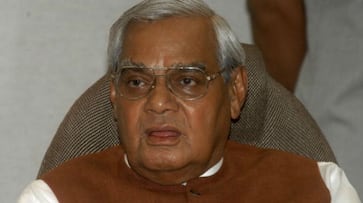Following Vajpayee's death, the BJP-ruled Union government announced seven days of state mourning till August 22
New Delhi: The legendary Atal Bihari Vajpayee passed away at New Delhi's All India Institute of Medical Sciences (AIIMS) on Thursday leaving a huge vacuum in Indian polity.
The BJP-ruled Union government announced seven days of state mourning till August 22. This is not the first time that a state mourning is being observed in India. The last time it was observed was when former president APJ Abdul Kalam died in 2015. At that time, the government announced a week of state mourning as well. Let us look at what a state mourning entails
Primarily, it’s the government expressing its grief and respect on behalf of the entire nation. During a state mourning, the national flag at all government offices and buildings is kept half-mast.
The national flag must also fly half-mast on the day of the leader's funeral in all Indian missions or high commissions.
Though it’s not a necessity, but the government is within its right to advise or request radio stations to refrain from airing certain kind of music for the said period, in respect of the deceased leader.
Though it’s not mandatory for the government to organise a state funeral for everyone who gets a state mourning, since the personality involved here is a former prime minister, by protocol, Vajpayee will get a state funeral as well. A state funeral is a public funeral ceremony, observing strict rules of protocol that has distinctive elements of military tradition.
Last Updated Sep 9, 2018, 10:01 AM IST









![Salman Khan sets stage on fire for Anant Ambani, Radhika Merchant pre-wedding festivities [WATCH] ATG](https://static-gi.asianetnews.com/images/01hr1hh8y86gvb4kbqgnyhc0w0/whatsapp-image-2024-03-03-at-12-24-37-pm_100x60xt.jpg)
![Pregnant Deepika Padukone dances with Ranveer Singh at Anant Ambani, Radhika Merchant pre-wedding bash [WATCH] ATG](https://static-gi.asianetnews.com/images/01hr1ffyd3nzqzgm6ba0k87vr8/whatsapp-image-2024-03-03-at-11-45-35-am_100x60xt.jpg)


